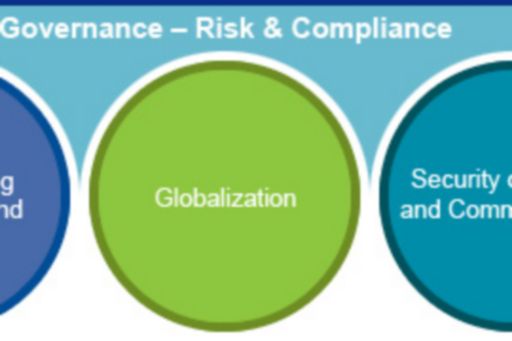Growth - Transactions & Projects
Growth – Transactions & Projects
ENR Tax offers a wide range of tax services to clients in the energy & natural resources industry.
ENR Industry Issues and Solutions re: Growth – Transactions & Projects.
Growth – Emerging market energy demands and Market entry and expansion
Today’s global energy markets are marked by rapidly rising energy consumption in emerging markets. Over the past decade, energy consumption declined in OECD countries but grew by over 2 percent in non-OECD countries. Much of this growth is concentrated in Brazil, Russia, India and China (BRIC). By 2030, global energy demand is expected to increase 35 percent from the 2005 levels—and up to 70 percent in non-OECD countries due to their rapid economic growth.
As traditional ENR markets become saturated, the emerging BRIC markets present tremendous growth opportunities. These countries have large, untapped markets for products, and they also offer lower production cost advantage. But many factors pose risks for companies carrying out business in these markets: complex government regulations, cultural differences, lack of infrastructure, corporate governance issues and shareholder rights, to name a few.
The economic growth of China and India and the vast domestic natural resources of Russia and the Middle East may trigger a fundamental realignment of global economic powers in supplying the world’s energy. Major energy consumers, such as China and Japan, are less likely to enter long-term supply contracts—they are more prone to securing their energy assets directly. National Oil Companies (NOCs) are gaining more influence over global supply and demand, helping to maximize crude oil prices and drive domestic industry growth and diversification as they acquire more downstream assets.
KPMG’s ENR Tax Services & Solutions – Global M&A and Managing Joint Ventures
Based on the above trends, we expect to see a rise mergers and acquisitions and investments through joint ventures. KPMG can help you plan your acquisitions and disposals tax-efficiently and provide tax due diligence services tailored to your business strategy and your industry.
Through our global network, we have extensive knowledge of local tax regimes, including petroleum and mining taxes, resource rent taxes, real estate taxes, and indirect taxes. Our firms can review your partnership agreements or financial arrangements to identify tax exposures. We can also help you determine the tax implications of your contracts with related parties, third parties, governments and tax authorities. These contracts could include exploration and production sharing agreements, land lease contracts, power purchase agreements, advance tax rulings, and advance pricing agreements.
Once the deal is done, we can advise on your cash flow modeling, implementation and post-transaction/post-venture tax structuring.
KPMG’s Global ENR Tax network includes professionals who specialize in these tax practice areas:
- Global Indirect Tax
- Global Transfer Pricing Services
- International Tax
- Deal Advisory, Mergers & Acquisitions
Growth - Meeting the US$26 Trillion Energy Investment Requirement
About 1.6 billion people in the world do not have access to energy. To meet the world’s growing energy needs, the International Energy Agency (IEA) estimates that total investment of US$26 trillion is required by 2030. Companies across the globe need to take steps to avert this crisis, and governments need to set policies to attract capital inflow to the energy sector.
Over the past three years, investment in sustainable energy has grown significantly. In developing countries, investments and venture capital financing are rising rapidly. But these countries lack effective frameworks for directing investment where it is needed most. These countries also need to take steps to increase private-sector investments in the energy sector.
KPMG’s ENR Tax Services & Solutions – Managing Major Capital Expenditure Projects and Energy Investment Requirements
KPMG firms can help your company meet local and international debt-to-equity requirements. We can also help:
- Characterize and finalize principal payments, interest expenses and cash flow implications of debt, and deemed debt obligations
- Advise you on how special rules or exemptions may apply to your company’s debt financing of exploratory activities in the oil & gas and mining industry or renewable energy projects
- Assist with related-party and cross-border transactions, provide indemnity clauses and default provisions or provide opinions and assist with filing requirements
Since these processes need to be carefully monitored, we can prepare your tax documentation, set up internal controls, and conduct personnel and process interviews. Our firms’ local presence, combined with our international network and deep industry knowledge, enables us identify opportunities that may result from these assessments.
KPMG’s Global ENR Tax network includes professionals who specialize in these tax practice areas:
Growth – Sustainability
The world faces major challenges in meeting rising energy demands while addressing the environmental impacts associated with energy use. The global issue of climate change has shifted the focus of businesses, particularly energy companies, toward more sustainable development, while governments are introducing climate change policies and regulations to control harmful emissions. Global leaders in the energy industry now see sustainability — as embodied in the UN Global Compact's 10 Principles for environmental, social and governance issues — as their core business strategy.
In 2011, global investment in renewable energy increased 5 percent from 2010 to a new record of US$260 billion, mainly boosted by solar technology, but also clean energy investments in the US, wind farm development in China and small-scale solar photovoltaic installations in Europe. In 2011, investment in renewable energy companies and utilityscale generation and biofuel projects in developing countries surpassed that in developed economies for the first time.
However, renewable energy investments are experiencing challenges. Due to the economic slowdown, some European countries have cut their incentives for renewable projects and may revert to investments in existing non-renewable projects. Further, in 2011, natural gas prices averaged US$4 per million British thermal units (MMBTu), well below the peak price of US$13 per MMBTu in 2008. This decline in pricing is encouraging global energy companies to increase their investments in gas-fired power stations.
KPMG’s ENR Tax Services & Solutions – Engaging the Green Agenda
We can also help you navigate the wide array of available global and local government and municipal grant programs or tax incentives related to the production and sale and purchase of alternative energy and green products. These include feed-in tariffs, tax holidays, accelerated depreciation, carbon tax/pricing, trading schemes, energy taxes, excise taxes or VAT in relation to wind, solar, biomass, biofuels, geothermal and hydropower sources, as well as increased energy efficiencies, smart-grid technologies, and carbon capture and storage technologies.
Due to the impact of these incentives and taxes on your investment decisions, KPMG firms can factor them into tailored due diligence and tax modeling services. These services apply not only to production or sale/purchase of green goods but also to green investments and financing arrangements.
KPMG’s Global ENR Tax network includes professionals who specialize in these tax practice areas:
Connect with us
- Find office locations kpmg.findOfficeLocations
- kpmg.emailUs
- Social media @ KPMG kpmg.socialMedia
Stay up to date with what matters to you
Gain access to personalized content based on your interests by signing up today




